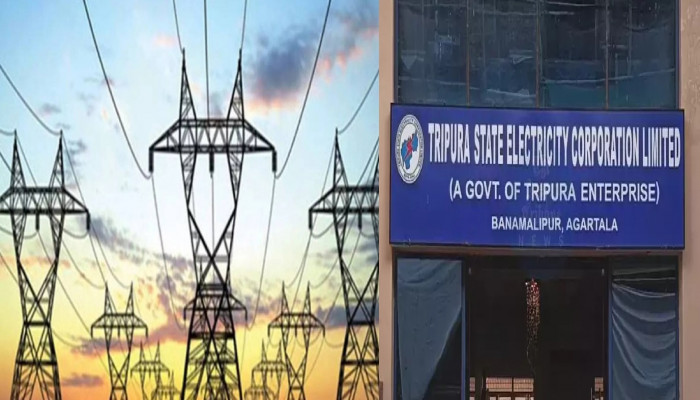Tripura demands Rs 135 crore in electricity dues from Bangladesh
- In Reports
- 05:25 PM, Dec 02, 2024
- Myind Staff
Tripura has demanded that Bangladesh clear its outstanding dues amounting to Rs 135 crore for electricity supplied, in light of increasing concerns over "anti-India activities" within the neighbouring country. The demand follows an alleged attack on an Agartala-Kolkata bus travelling through Bangladesh’s Brahmanbaria district on Saturday. During the incident, a group of people allegedly threatened passengers and shouted anti-India slogans, heightening tensions between the two regions.
Ratan Lal Nath, the power minister of Tripura, commented on the situation, stating that despite the outstanding dues, Bangladesh has made regular payments for electricity. “Although Rs 135 crore is outstanding, Bangladesh has generally paid on time. We charge Rs 6.65 per unit for power, which is a reasonable rate compared to domestic rates,” Nath clarified. However, the issue has raised concerns over the security of payments, especially with Bangladesh’s increasing financial challenges and the strained relationship between the two countries.
This is not the first time that the Tripura State Electricity Corporation Limited (TSECL) has faced difficulties with payments from Bangladesh. In May this year, TSECL restricted the power supply to Bangladesh due to outstanding dues exceeding Rs 100 crore. The situation has only worsened as the overdue payments have continued to mount. TSECL Managing Director, Debasish Sarkar, revealed that Bangladesh’s authorities have been unable to make timely payments over the last year, leading to a significant increase in outstanding amounts. “The Bangladesh Power Development Board (BPDB) owes more than Rs 100 crore to TSECL. We have written several letters to Bangladesh’s authorities and even met with the chairman of the BPDB to resolve this issue,” Sarkar said.
He further highlighted that despite their efforts to streamline payments, the Bangladesh authorities have cited financial difficulties as the primary reason for the delay. The situation has placed a significant strain on Tripura’s power sector. Sarkar also noted that the delayed payments have hindered the fund flow for the state’s electricity corporation, making it more challenging for the state to maintain a smooth operation.
Under the current agreement, Bangladesh is entitled to 160 megawatts of power from Tripura, with the electricity trade overseen by NTPC Vidyut Vyapar Nigam (NVVN). Sarkar explained that Bangladesh has been paying in instalments, but these delayed payments have caused liquidity issues for TSECL, impacting its operations. “The payments are being made in instalments, which affects the cash flow of our electricity corporation. We have also approached NVVN to ensure that Bangladesh makes the payments on time,” he added.
This financial strain is coming at a difficult time for Tripura, which has seen a significant drop in its own power generation. Once a power-surplus state, Tripura now faces challenges in generating sufficient electricity for its own needs. “The generation of power in Tripura’s power plants has dropped by 60 to 70 megawatts. We were once a power-surplus state, but now we have to purchase power from exchanges to meet the rising domestic demand,” said Sarkar. He added that a lack of gas has further hindered power generation in the state’s thermal power projects.
The drop in power generation capacity in Tripura has raised concerns about the state’s ability to meet domestic demand and fulfill its power supply commitments to Bangladesh. The state has been forced to rely on external sources for power while struggling with financial challenges of its own. The delayed payments from Bangladesh have only worsened the situation, making it more difficult for Tripura to manage its energy requirements.
The ongoing dispute highlights the complex energy and political relationship between India’s northeastern state of Tripura and its neighbouring country Bangladesh. As the matter remains unresolved, both governments are under increasing pressure to find a solution that can address the financial challenges while ensuring energy security for both sides.







Comments